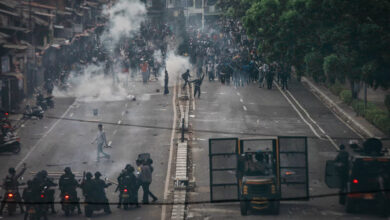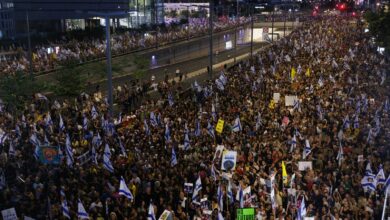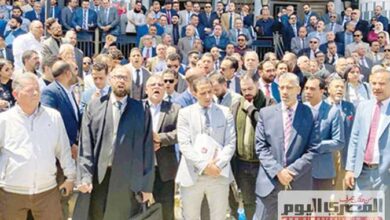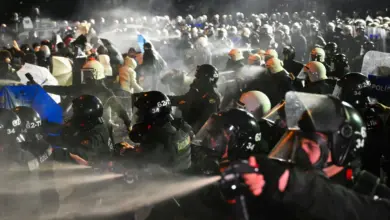Despite it being the first anniversary of the most violent day of Egypt's revolution, the numbers in Tahrir Square were not so large on Saturday, mainly because the violence was commemorated on Friday, when tens of thousands marched towards Tahrir.
A sit-in at nearby Maspero continued, and on Saturday afternoon over 2000 protesters were still there.
Another development at Maspero was an open-ended sit-in of ambulance drivers and workers, who were objecting to the authorities' refusal to offer them permanent contracts. Over 30 ambulances from Cairo, Giza and Daqahliya were parked opposite Maspero.
Mohamed Khamis, an ambulance driver, said they came to Maspero because it is the state TV building and they hope they will no longer be ignored.
"We want permanent contracts, I've been working on a temporary basis for three and a half years," he said. He placed the blame squarely on the head of the ambulance authority, Mohamed Sultan, who according to Khamis has called objecting ambulance workers "thugs."
Earlier in the day:
Hundreds of protesters gathered on Saturday on Qasr al-Nil Bridge to commemorate those who were killed by security forces on 28 January — the Friday of Anger — last year.
A number of protesters who have been staging a sit-in since yesterday in Tahrir Square marched around the square on a regular basis to avoid causing traffic jams. They demanded that the ruling Supreme Council of the Armed Forces hand over power to a civilian authority.




